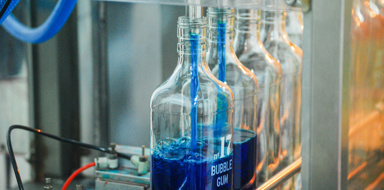Consumer demands for more sustainable, infinitely recyclable metal packaging in the wake of the single use plastic pollution crisis is driving a need in the industry that CMbE serves for faster, more productive, more efficient and more reliable metal can forming machines.
Simultaneously, these manufacturers are losing experienced operators who can identify problems with these machines to retirement.
CMbE identified the need to support its customers by introducing process monitoring which would improve the machine uptime to cope with capacity demands and would help mitigate the skills shortages.
Michael Halstead, design verification engineer at CMbE said: “The beverage can Bodymaker is a powerful metal forming process and these machines operate around 350 cans per minute. The harsh low frequency vibrations produced by the machines combined with aggressive metal forming lubricant coolants, present a hostile environment for applying typical sensors or measurement equipment.
“Our project, Canvolution, aims to design, develop, manufacture and commission a network of intelligent Bodymakers capable of monitoring the real-time can-forming process in order to advise operation decision-making to increase productivity with minimal human intervention.”
Working with long-term partner Computer Controller Solutions, specialists in high-speed data acquisition systems, CMbE solved the challenge of capturing the data generated by its machines, and needed a partner who could help with the data analysis.
Halstead added: “When we trialled the data acquisition, we generated a lot of data - 1TB per week, per machine. We needed a partner who could provide an architecture to securely transmit, store and analyse that data, to do some machine learning on that live data in order to predict process change, and to visualise the data we had collected locally and remotely.”






